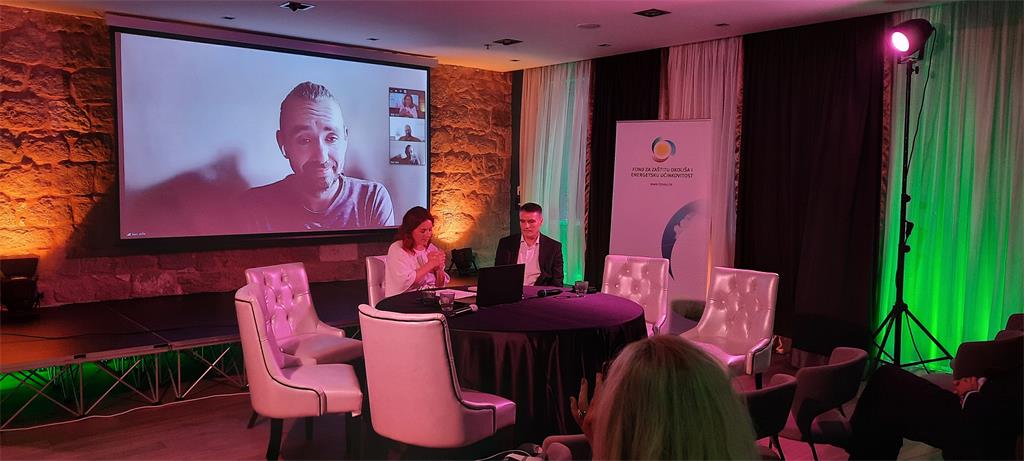22.09.2023.
Deputy director of the Fund, Mirko Budiša, took part in the 7th International Energy Forum (INTERENEF) held in Split, which was organised by the Institute for European and Globalisation Studies (IEGS). The topic of the Forum was “Solar Energy in Energy Policies of the European Union and Southeast Europe”, focusing on the new solar technologies and economic benefits, risks, and regulations affecting the production of solar energy.In one of the panel discussions, deputy director Budiša explained the role of the Fund in the development of these types of technologies in Croatia: “The Fund is financing renewable energy sources, including solar power, through several of our programmes. Only last year the Fund granted 25 million euros to legal and natural persons for RES projects, and we have a generous budget provided for this year as well.” He underlined that Europe had recognised solar power as an important energy source and we could see progress in its use, including in Croatia. “At the end of last year, the number of solar power plants connected to the HEP ODS distribution network was just shy of 7,000. Our task is to support and speed up this growth, which has been planned in the Fund’s upcoming programmes,” announced Budiša, adding that the aim is to encourage the use of not only solar power, but also of the significant geothermal energy potential.
The discussion about solar energy at this year’s Forum gathered acknowledged experts from the academia, politics, and business. After the introductory speech by Romana Jerković, Member of the European Parliament, the participants had the opportunity to hear about the benefits and experiences of using solar energy, but also about the regulatory aspects of the application of solar energy. In the third and closing panel, the focus was on the economic benefits, and the challenges of using solar energy.
The participants agreed on this complex issue affected by a number of factors – from the geopolitical situation, through climate change to legislative framework. In order to fast-track this progress and achieve the desired results, mutual and interdepartmental cooperation is necessary, as it can ensure not only Croatia's energy independence, but also excellence in the green transition of the energy sector.











